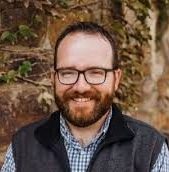What is Practical Atheism?
In Ephesians 2:12 Paul gives five truths of what the Ephesian Gentiles were like before coming to Christ. The final truth in that text is that they were “without God” – the phrase is from one Greek word, ἄθεος (atheos). This is where we get our English word “atheist”. It is simply from the Greek prefix “a” meaning “not” (or without) and the Greek word “theos” meaning “God.”
Thus, the Ephesian gentiles were “atheists” in the sense that they were without the true God of the Bible. As John Chrysostom noted, “Though gods indeed they worshipped, but they were no gods.”[1]
Puritan Stephen Charnock picks up on this truth in his work The Existence and Attributes of God.[2] He writes, “The Gentiles were without God in the world; without the true notion of God, not without a God of their own framing. This general or practical atheism is natural to men.”
What does Charnock mean by “practical atheism”? Practical atheism is acknowledging God, even the one true God, in one’s confession of faith or verbal affirmation, but denying Him in action. Charnock notes, “Actions are a greater discovery of a principle than words…[T]he frame of men’s hearts must be measured rather by what they do than by what they say.”
He goes on to say, “Those…are more deservedly termed atheists who acknowledge a God, and walk as if there were none, than those (if there can be any such) that deny a God, and walk as if there were one.”
Such practical atheism can be seen in all sorts of examples in our culture today. So many name the name of God but live as though there is none. They may talk about prayer or God’s blessings or even the Bible, but they have no evidence of walking submissively under the kingship of Christ in their lives.
Practical Atheism and Christianity
Can a Christian be a practical atheist? Well, not over the course of one’s life by any means. But in one sense, as Charnock notes, “All sin is founded in a secret atheism.” He goes on to say, “In sins of omission we own not God, in neglecting to perform what he enjoins; in sins of commission, we set up some lust in the place of God, and pay to that the homage which is due to our Maker. In both we disown Him; in the one by not doing what He commands, in the other by down what He forbids.”
Sadly, then, even Christians struggle with denying God by our actions when we choose to disbelieve or disobey Him. This is why sin left unchecked is a dire issue. It’s why the author of Hebrews says, “Take care, brothers, lest there be in any of you an evil, unbelieving heart, leading you to fall away from the living God” (Heb. 3:12, emphasis mine).
It’s not that true Christians can become “unchristians” by committing sin. Rather, it is the reality that habitual disobedience to God actually reveals one has an unbelieving heart. These people are serving a god of their own invention. They are not flirting with practical atheism so much as by all intents in purposes they are atheists (cf. Eph. 2:12). They are without God in the way that they live their lives even if they profess to know Him by their words or statements of faith.
Practical Atheism and the SBC
This brings us to the current crisis of the Southern Baptist Convention. Please note that I am not accusing members of the SBC as being unbelievers. But I am strongly warning us here that we are dangerously flirting with practical atheism. And we must know that the lips of practical atheism may drip honey, and her speech be smoother than oil. But in the end she is bitter as gall, sharp as a double-edged sword. Her feet go down to death; her steps lead straight to the grave. The flirting must stop. The adulterous bed of practical atheism is where denominations and conventions of churches go to die.
Let me specify one area of grave concern. Egalitarianism is a sin that will kill the Southern Baptist Convention. It’s even possible (though I pray not) that the snake of egalitarianism has already bitten us in such a way that we are now simply dying a slow death.
Charnock notes, “A man in every sin aims to set up his own will as his rule, and his own glory as the end of his actions against the will and glory of God”. Thus, when we say, contrary to the Word of God, that a woman can teach or have authority over a man (cf. 1 Tim. 2:12), we set up our glory over God’s and we deny His authority over us.
This is no light matter. This is practical atheism. As Charnock notes, “When we disown His authority, we disown His Godhead.” To say that the Scriptures do not bear practical authority is to disown God. Of course, no one that I am aware of would say this. But our actions are preaching much louder than our words.
We cannot merely say we affirm the Baptist Faith and Message while doing what is right in our own eyes. This is a common liberal play. And too many who are claiming “liberalism is a bogeyman” in the SBC are playing it.
“Oh,” but one says, “this is merely a difference in how we interpret certain texts.” Hear a nearly 400-year-old rebuke from Charnock: “How glad are men when they can raise a battery against a command of God, and raise some smart objection whereby they may shelter themselves form the strictness of it!”
Those who would play word games and have us jump through strange hermeneutical hoops in order to allow 1 Timothy 2:12 (and other texts) to say the opposite of what God intended are at best playing a very dangerous game (and at worst part of a Satanic strategy).
Tom Buck summarized this well when he tweeted, “If you can take ‘I do NOT permit a woman to teach or exercise authority over a man’ and make it mean ‘I DO permit a woman to teach and exercise authority over a man,’ then there is nothing in Scripture you couldn’t make say whatever you want it to say.”
Similarly, Charnock laments, “How many forced interpretations of Scripture have been coined to give content to the lusts of men, and the divine rule forced to bend, and be squared to men’s loose and carnal apprehensions!”
Why, brothers and sisters, are we a) moving away from the authority and sufficiency of Scripture in the matter of gender roles in our convention and b) not more passionate about lovingly warning our sister churches who are making these moves?
I have seen too many tweets and posts of people trying to build unity “around the gospel” while dismissing these secondary issues as not that important or relegated to “church autonomy.”
It is true that there is no ecclesiastical hierarchy that can prevent a local church from having a woman serve as pastor or preach to the gathered congregation. However, a church can only do these things in open defiance to God’s Word. And when a church does these things, it no longer has a like faith and practice that closely identifies with the Baptist Faith and Message (2000). One of the most loving things we can do to such a church is confront it for its sin, call it to repentance, and dismiss it from fellowship if its members choose to continue the way of practical atheism.
God’s Word God’s Way
These are serious times in our convention. This is not to say that every person who embraces egalitarianism hates God. Though the SBC leaves no room for egalitarian cooperation, it does not mean that all egalitarians are unbelievers.
But, oh my friends, egalitarianism is a serious error. It is a cancer that leads to more cancer and will choke the life out of any group of churches no matter how firmly they once stood on the gospel of our Lord Jesus Christ.
Charnock writes, “Subjects or servants that love to obey their prince and master, will delight to read and execute their orders.” If we love God, we delight to read and execute His orders. And He has plainly told us how we ought to order our homes and our churches. To dismiss His Word and His ways is to deny Him altogether. Those that continue the way of practical atheism find themselves in opposition to God and His mission. How can Southern Baptist Churches partner with those in opposition to the God’s plan for churches?
Charnock goes on to say, “The reason we have such hard thoughts of God’s will is, because we have such high thoughts of ourselves.” Consider Charnock’s words! When we are “apologetically complementarian” or when we flat out compromise in this area it reveals a low view of God and a high view of man. It reveals such a high thought of ourselves and where we are in the culture today that we know better than an antiquated God. It reveals that we do not trust His goodness in the created order. It reveals that we think He’s holding back on us. It reveals that in practical terms, we are atheists.
Brothers and sisters, let us repent and reaffirm our commitment to God’s Word and God’s ways. Let us not follow the egalitarian road. For if we do decide to fearlessly continue in the way of practical atheism, then the name change of the Southern Baptist Convention is forever settled: Ichabod.
[1] John Chrysostom, “Homilies of St. John Chrysostom, Archbishop of Constantinople, on the Epistle of St. Paul the Apostle to the Ephesians,” in Saint Chrysostom: Homilies on Galatians, Ephesians, Philippians, Colossians, Thessalonians, Timothy, Titus, and Philemon, ed. Philip Schaff, trans. William John Copeland and Gross Alexander, vol. 13, A Select Library of the Nicene and Post-Nicene Fathers of the Christian Church, First Series (New York: Christian Literature Company, 1889), 71.
[2] Quotes in this blog come from, Stephen Charnock, The Existence and Attributes of God, Vol. 1 (Grand Rapids, MI: Baker Books, 1996), 89-107.























